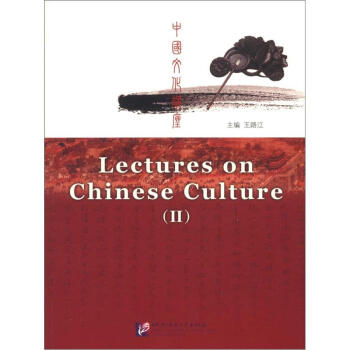精彩书摘:
3.3 Centralization of Power
On the basis of the thoughts and practice of the Legalist School, Han Feizi putforth the political idea of centralization ofpower by absolute monarchy. He held that torule efficiently, the ruler must hold power solely by himself. In his philosophy, the rulercould firmly control the state with the help of three concepts: his position ofpower (shi,势), certain techniques (shu,术), and laws (fa,法). Legalism assumed that everyoneacted according to one principle: the law must severely punish any unwanted action,while at the same time reward those who followed the law. Legalism was perhaps theharshest philosophy. Han Feizi believed human nature was evil and people should bepunished according to their actions. Simply put, Legalism posited that because peoplewere inclined to act badly, society needed strict laws and harsh punishments. Thisnecessitated what some would term "rule by fear."
Just to add a few words about the sources of his shi (his position of power), shu(techniques) and fa (laws). Legalists synthesized the ideas of Shang Yang(商鞅), ShenBuhai(申) and Shen Dao (慎到, 395-315 B.C.). For example, Han Feizi borrowed Shang Yang's emphasis on laws, Shen Buhai's emphasis on techniques and Shen Dao's ideas on position of power .
The concept of fa comes from Shang Yang's book The Book of Lord Shang (《裔君书 》), referring to the elaborate system oflaws that is to be drawn up by the ruler, distributed by his o伍cials, and taught and explained by them to the populace. By such a system oflaws, and the inescapable punishments that backed it up, all life within the society was to be ordered, so that nothing would be left to chance, private judgment, orthe appeal to privilege. To this concept, he added another concept borrowed from the writings of Shen Buhai, the concept of shu, which refers to the techniques, policies, methods, and art of governing. The populace was to be controlled by the laws, and the ruler was to be guided by a set of principles by which he wielded authority and controlled the men under him. The ruler had to have a body of people doing administrative work. Unable to attend all affairs in person, he had to make certain thatthe men to whom he delegated power did their work efficiently and without deceit. He needed a set of rules for management and personnel control, and this set of rules is supplied under the name of shu.
……
内容简介:
中华文化,亦称华夏文化,博大精深,源远流长,自上古滥觞,至今已六千余年。华夏之称,言有礼仪之大,有文章之华,其精髓体现在生活之点滴,其深意渗透于语言之文字。北京语言大学作为中国一所对来华留学生进行汉语和中华文化教育为主要任务的国际型大学。将文化传统与语言教学视为己任,可谓义不容辞。《中国文化讲座(2)》是为了还中华文明之美,展华夏民族之魅,以期透过滴水观之世界。《中国文化讲座(2)》择前六期中之九讲,涉及经典论著,园林、中医等。配文字并辅以讲者视频,供中国文化之学习者参考。
目录:
韩非子的哲学思想
中国园林及其文化影响
中国传统的家庭观念
《孙子兵法》:中国人的生活艺术
《三字经》中的中国文化
中岡刺绣文化
中国的君子文化
中国神话中的创世故事
道家思想对传统中医的影响




好评度